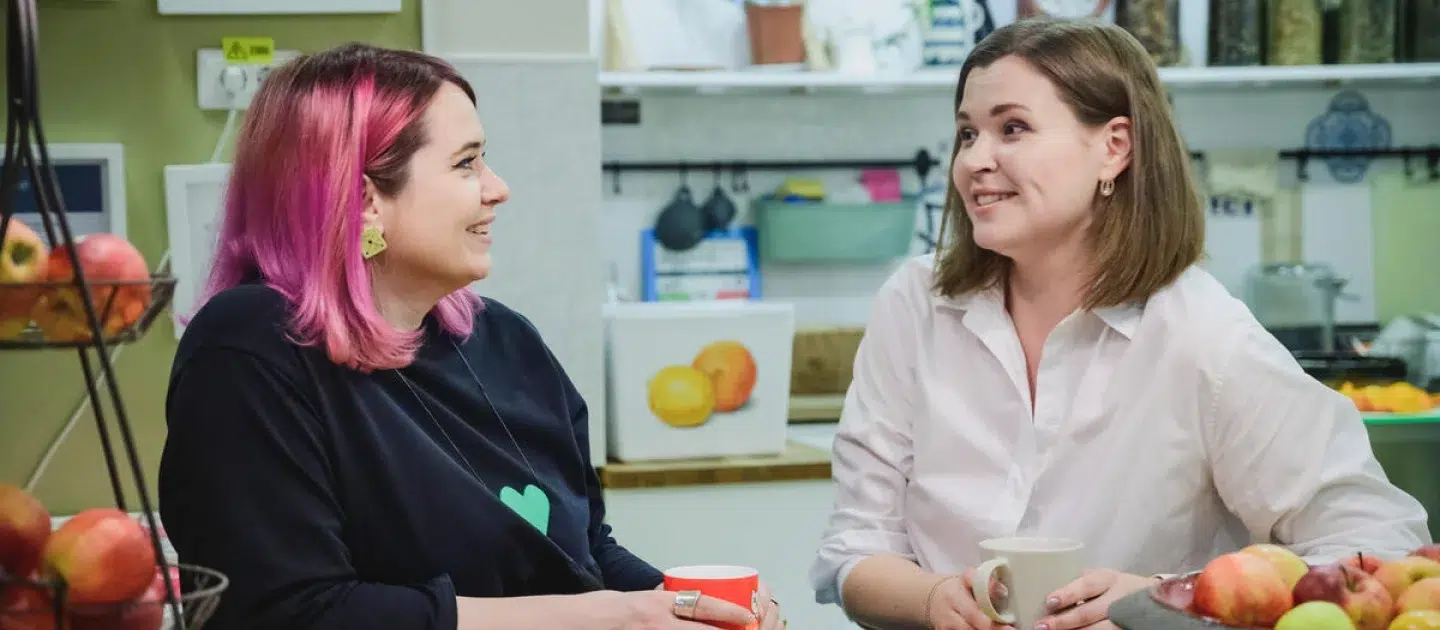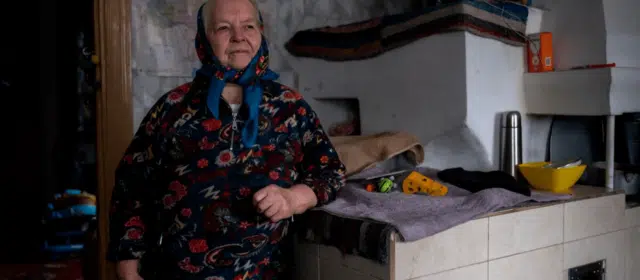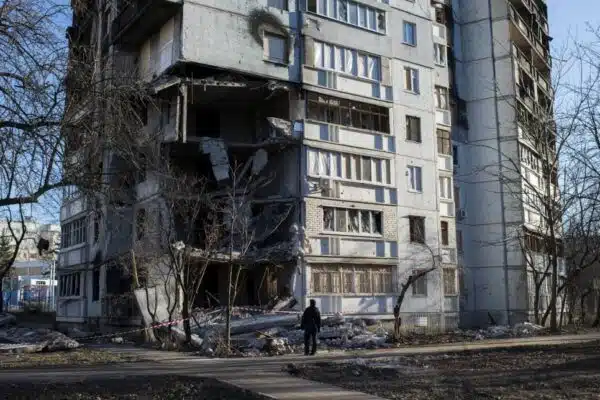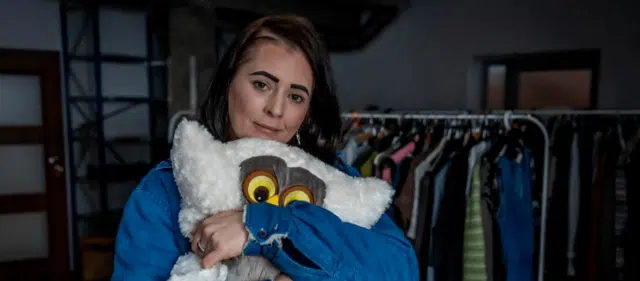
Ekaterina (right) with her friend and colleague Stefania, who helped her find her feet in Romania’s capital Bucharest after fleeing the war in Ukraine. © UNHCR/Ioana Epure
When war broke out in Ukraine, Ekaterina and her young son fled to Romania. Moved by the public support they received, she is rebuilding her life and making new friendships.
By Mark Macdonald and Hannah Mathie in Bucharest, Romania | 24 February 2023
At the Seneca Anticafé, a bookshop and shared workspace in the Romanian capital Bucharest, there are more Ukrainian books on the shelves these days. There are also Romanian language courses on offer and, among the staff greeting visitors, there is Ekaterina, a Ukrainian refugee.
Working at the café helps Ekaterina, 30, rebuild her life in a new country, creating some of the normality and independence she had lost to the ongoing war in her country, but it is also an opportunity to help others who, like her, have been forced to flee their homes.
“It is important to help ignite a spark of hope and to let people know there is always an opportunity to get their lives—and the lives of their children—back on the right track,” Ekaterina says.
Her colleague and friend Stefania, says, “Ekaterina knows how to talk to people, she’s good at it.” But the benefits are not just for customers, because Ekaterina has given the war in nearby Ukraine a human face. “I think she has made us better at being more empathetic,” says Stefania.
Ekaterina is one of 8 million refugees who have found safety across Europe since the invasion of Ukraine in February 2022, while a further 5 million people are displaced within the country.
“The day the war started, my husband and I couldn’t believe it,” says Ekaterina. “It seemed to us like some kind of nightmare.”
As nearby towns came under attack the family knew it was only a matter of time before the violence spread to their own city. After the family endured two weeks sheltering from terrifying air raids, Ekaterina realised she needed to flee.
“I had to leave my home and my career behind, let go of it all, leave the country and save my child. That was the most important thing for me at that moment.”
Saying goodbye to her husband and pet dog, and stuffing a few possessions in a suitcase, Ekaterina and her son boarded a train crammed with other fleeing families, all equally bewildered, frightened and uncertain of the future.
Together, they travelled first to Moldova and then on to Romania, which today hosts 109,000 Ukrainian refugees, most of them mothers with children, like Ekaterina.
“For the first few months, I was lost.”
Initially, Ekaterina had planned to travel onwards, but the warm welcome she and her son received in Romania contributed to her decision to stay in the country—even as they crossed the border for the first time they were met with kindness in the form of a hot meal and a gift of toys—but her life had been turned upside down.
“At first, I was very broken, I was depressed. For the first few months, I was lost,” says Ekaterina. “I didn’t know what would happen next, or what my new life would be like.”
“But [then] I heard about refugee assistance programmes,” she says. “It has really helped us a lot.” One of the main hubs in the capital Bucharest is RomExpo, a former warehouse that UNHCR, the UN Refugee Agency, has repurposed as a welcoming community support centre. Here, refugees such as Ekaterina can receive help such as information on protection, counselling, healthcare, cash assistance, and support finding employment.
Ekaterina was a wedding photographer before the war but has taken to her new job in the café, which came with free accommodation nearby. UNHCR cash assistance helped with basics for their new life, such as bedding and clothes for her son, who only had the winter clothes he fled with.
While they dream of returning home, for now Ekaterina and her son feel safe and more settled.
Having found her feet in Romania, Ekaterina is focused on helping others to do the same. “It is very important to help people who are fleeing the war, because you can’t start your life in a new country without knowing the language, without money, without a home, without clothes,” she says.
At the café she is making friends with customers and colleagues alike. “She’s helping us all round, it’s not only about the language,” says Stefania, describing Ekaterina’s interactions with Seneca’s Ukrainian customers. And, she adds laughing, “We discovered she’s an amazing photographer, so we are prettier thanks to her!”
Originally published by UNHCR on 24 February 2023.





